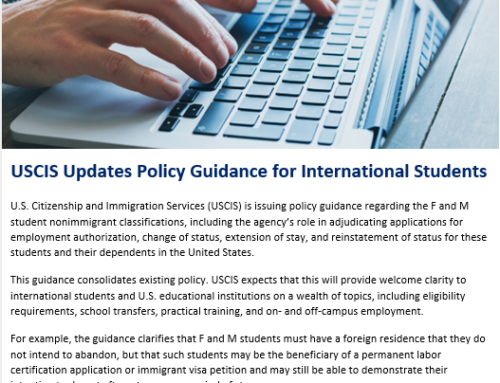J-1 Exchange Visitor Program for Knowledge and Skill Exchange
Are you interested in teaching, studying, conducting research, or receiving specialized training in the United States? If so, the J-1 visa classification, also known as exchange visitors, maybe the perfect opportunity for you. This blog will provide detailed information about the J-1 visa program, its application process, employment options, and how your family can join you in the United States.
The J-1 visa program is designed for individuals who wish to participate in an approved program in the United States with the intention of teaching, instructing, studying, observing, conducting research, consulting, demonstrating special skills, receiving training, or pursuing graduate medical education. This program promotes exchanging knowledge and skills in various fields, including education, arts, and science.
The U.S. Department of State designates public and private entities as exchange sponsors to facilitate the Exchange Visitor Program. These sponsors play a vital role in supporting and overseeing J-1 nonimmigrants during their stay in the United States. They ensure compliance with program requirements and help exchange visitors navigate the intricacies of the immigration process.
The J-1 visa program covers a wide range of individuals, including:
- Professors or scholars
- Research assistants
- Students
- Trainees
- Teachers
- Specialists
- Au Pairs
- Camp counselors
If you are considering applying for a J-1 visa, the first step is to submit a Form DS-2019, also known as the Certificate of Eligibility for Exchange Visitor Status. This form is provided by your sponsoring agency, which is authorized by the U.S. Department of State to sponsor J-1 nonimmigrants. The responsible officer (RO) or alternate responsible officer (ARO) at your sponsoring agency will guide you through the application process and inform you about the required documents for obtaining the DS-2019.
Once you have the DS-2019 form, you can apply for a J-1 visa at a U.S. Embassy or Consulate in your home country. It’s important to note that interview appointment waiting times can vary, so submitting your visa application as early as possible is strongly recommended. However, you should also remember that you cannot enter the United States in J-1 status more than 30 days before your program begins.
Employment opportunities for J-1 nonimmigrants are determined by the terms of the exchange program. Some J-1 visa holders may be eligible to work in the USA, while others may not. It’s crucial to consult with your sponsoring agency to understand any restrictions or guidelines related to employment during your J-1 program.
If you are granted a J-1 visa, your spouse and unmarried children under 21 are entitled to accompany you to the United States under the J-2 classification. As J-2 dependents, they can also apply for employment authorization. However, it’s important to note that their income cannot be used to support you financially.
To apply for employment authorization as a J-2 nonimmigrant, your spouse or child should file Form I-765, the Application for Employment Authorization. This process allows them to explore employment opportunities and contribute to their personal development while you pursue your J-1 program.
At I.S. Law Firm, we understand the complexities of the J-1 visa program and the importance of a successful application process. Our experienced immigration attorney are dedicated to helping you navigate the intricacies of immigration law and providing the guidance you need throughout your J-1 journey. If you have any questions or need assistance, please contact our firm to schedule a consultation using the following link: Schedule a Consultation – I.S. Law Firm, PLLC.



